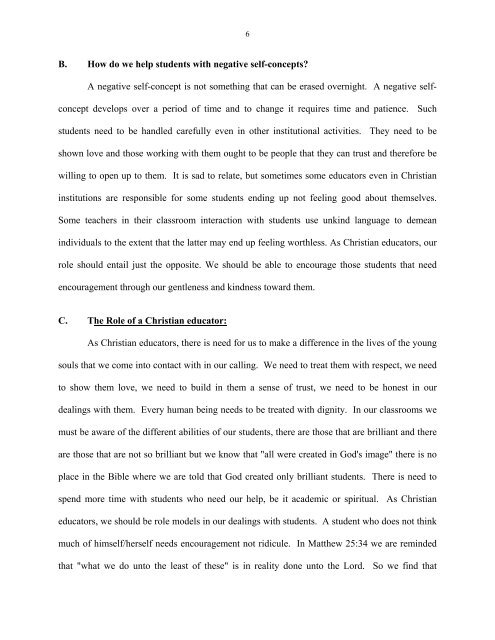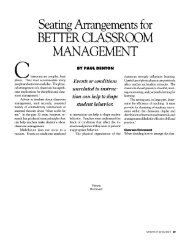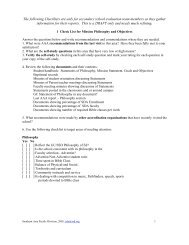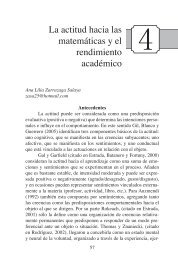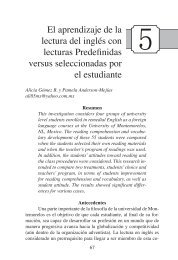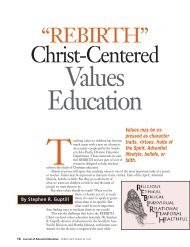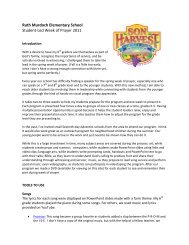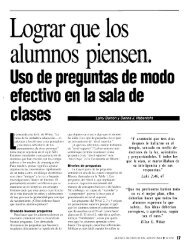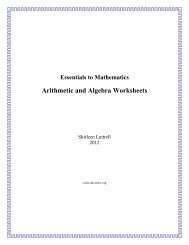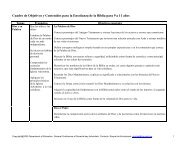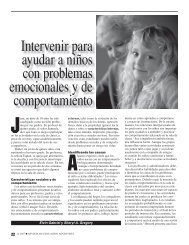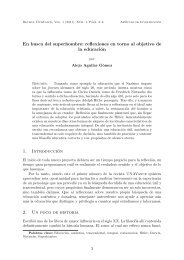Verbal Communication in the Classroom: What Christian ... - Circle
Verbal Communication in the Classroom: What Christian ... - Circle
Verbal Communication in the Classroom: What Christian ... - Circle
Create successful ePaper yourself
Turn your PDF publications into a flip-book with our unique Google optimized e-Paper software.
6<br />
B. How do we help students with negative self-concepts?<br />
A negative self-concept is not someth<strong>in</strong>g that can be erased overnight. A negative selfconcept<br />
develops over a period of time and to change it requires time and patience. Such<br />
students need to be handled carefully even <strong>in</strong> o<strong>the</strong>r <strong>in</strong>stitutional activities. They need to be<br />
shown love and those work<strong>in</strong>g with <strong>the</strong>m ought to be people that <strong>the</strong>y can trust and <strong>the</strong>refore be<br />
will<strong>in</strong>g to open up to <strong>the</strong>m. It is sad to relate, but sometimes some educators even <strong>in</strong> <strong>Christian</strong><br />
<strong>in</strong>stitutions are responsible for some students end<strong>in</strong>g up not feel<strong>in</strong>g good about <strong>the</strong>mselves.<br />
Some teachers <strong>in</strong> <strong>the</strong>ir classroom <strong>in</strong>teraction with students use unk<strong>in</strong>d language to demean<br />
<strong>in</strong>dividuals to <strong>the</strong> extent that <strong>the</strong> latter may end up feel<strong>in</strong>g worthless. As <strong>Christian</strong> educators, our<br />
role should entail just <strong>the</strong> opposite. We should be able to encourage those students that need<br />
encouragement through our gentleness and k<strong>in</strong>dness toward <strong>the</strong>m.<br />
C. The Role of a <strong>Christian</strong> educator:<br />
As <strong>Christian</strong> educators, <strong>the</strong>re is need for us to make a difference <strong>in</strong> <strong>the</strong> lives of <strong>the</strong> young<br />
souls that we come <strong>in</strong>to contact with <strong>in</strong> our call<strong>in</strong>g. We need to treat <strong>the</strong>m with respect, we need<br />
to show <strong>the</strong>m love, we need to build <strong>in</strong> <strong>the</strong>m a sense of trust, we need to be honest <strong>in</strong> our<br />
deal<strong>in</strong>gs with <strong>the</strong>m. Every human be<strong>in</strong>g needs to be treated with dignity. In our classrooms we<br />
must be aware of <strong>the</strong> different abilities of our students, <strong>the</strong>re are those that are brilliant and <strong>the</strong>re<br />
are those that are not so brilliant but we know that "all were created <strong>in</strong> God's image" <strong>the</strong>re is no<br />
place <strong>in</strong> <strong>the</strong> Bible where we are told that God created only brilliant students. There is need to<br />
spend more time with students who need our help, be it academic or spiritual. As <strong>Christian</strong><br />
educators, we should be role models <strong>in</strong> our deal<strong>in</strong>gs with students. A student who does not th<strong>in</strong>k<br />
much of himself/herself needs encouragement not ridicule. In Mat<strong>the</strong>w 25:34 we are rem<strong>in</strong>ded<br />
that "what we do unto <strong>the</strong> least of <strong>the</strong>se" is <strong>in</strong> reality done unto <strong>the</strong> Lord. So we f<strong>in</strong>d that


